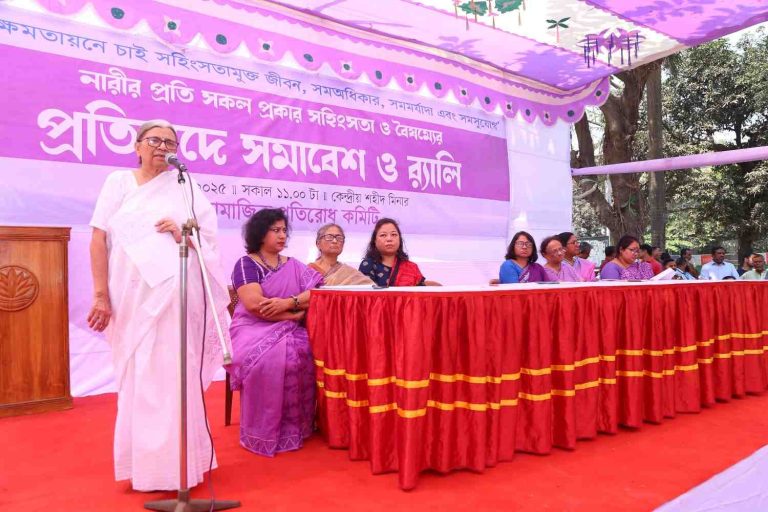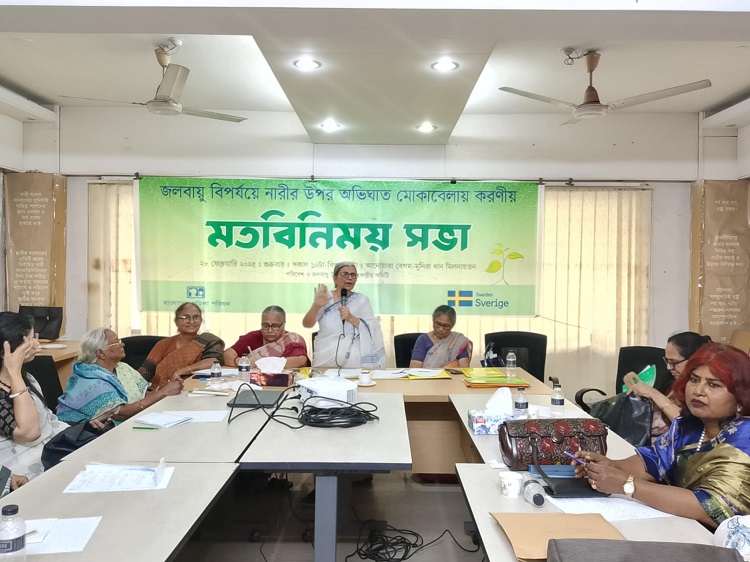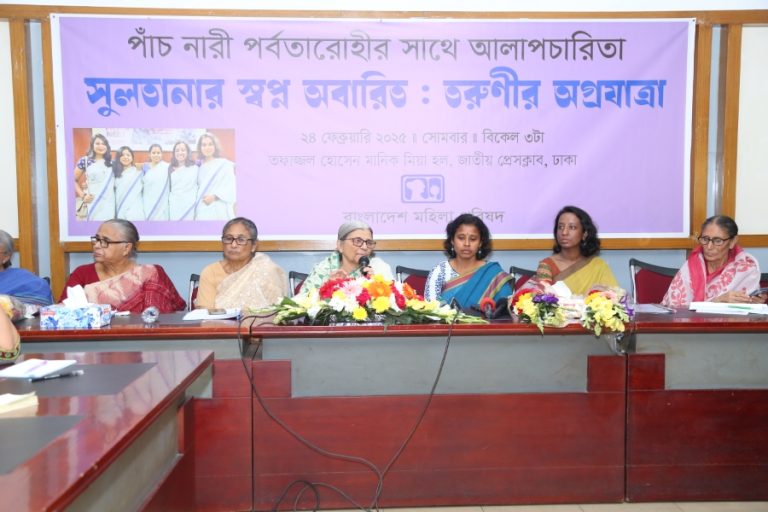On March 8, 2024, 3:30 pm a rally, cultural program, and assembly took place at the Shoparjito Shadhinota Chattar, Dhaka University, organized by the Social Action Committee. The event aimed to commemorate International Women’s Day and advocate for changes in discriminatory family laws and increase budget allocation to eliminate obstacles to women’s advancement. Dr. Fauzia Moslem, President of Bangladesh Mahila Parishad (BMP), chaired the event. Notable speakers included Rokeya Kabir, Executive Director of Bangladesh Nari Pragati Sangha (BNPS); Zakia K Hasan, former President of Women for Women and Executive Director of DIPTO- A Foundation for Gender and Development; Dilip Kumar Sarkar from The Hunger Project; and Advocate Salma Ali, President of Bangladesh National Women Lawyers’ Association.
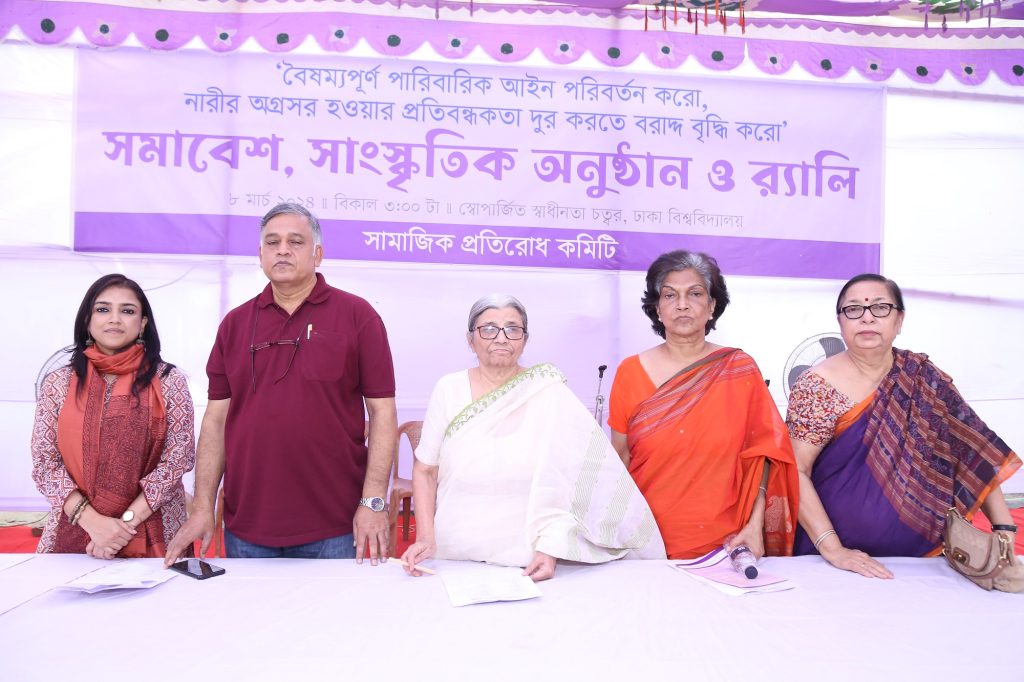
The event started with a musical performance by Udichi Artists Group and a performance by artists from the Law and Justice Center.
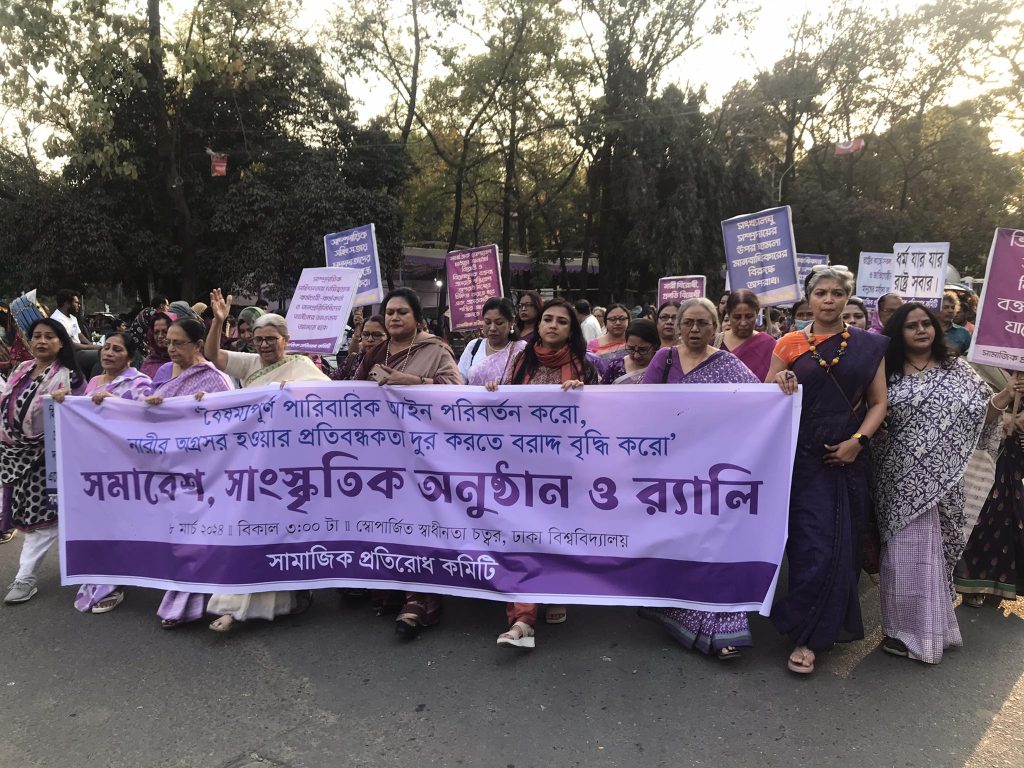
During her speech, President Dr. Fauzia Moslem highlighted the long history of women’s societal organization through continuous movements spanning over two centuries. She underscored the importance of eradicating gender inequality to reach the sustainable development goals by 2030. Dr. Fauzia Moslem also emphasized the significance of boosting investments in primary education to break free from societal divisions, violence, and prejudice. She advocated for the implementation of a zero-tolerance approach towards violence, guaranteeing women’s safety in the digital realm, recognizing the value of women’s domestic and service contributions, and transforming societal attitudes and perceptions through strategic investments.
Rokaya Kabir, the executive director of BNPS, has highlighted the challenges faced by women in Bangladesh due to violence and oppression in a patriarchal society. She has pointed out that incidents of domestic violence and social oppression are prevalent at both national and family levels, leading to women being denied equal rights to assets. Kabir stresses the importance of establishing women’s human rights and enforcing the Inheritance Law to promote gender equality in Bangladesh, a principle rooted in the awareness raised during the liberation war.
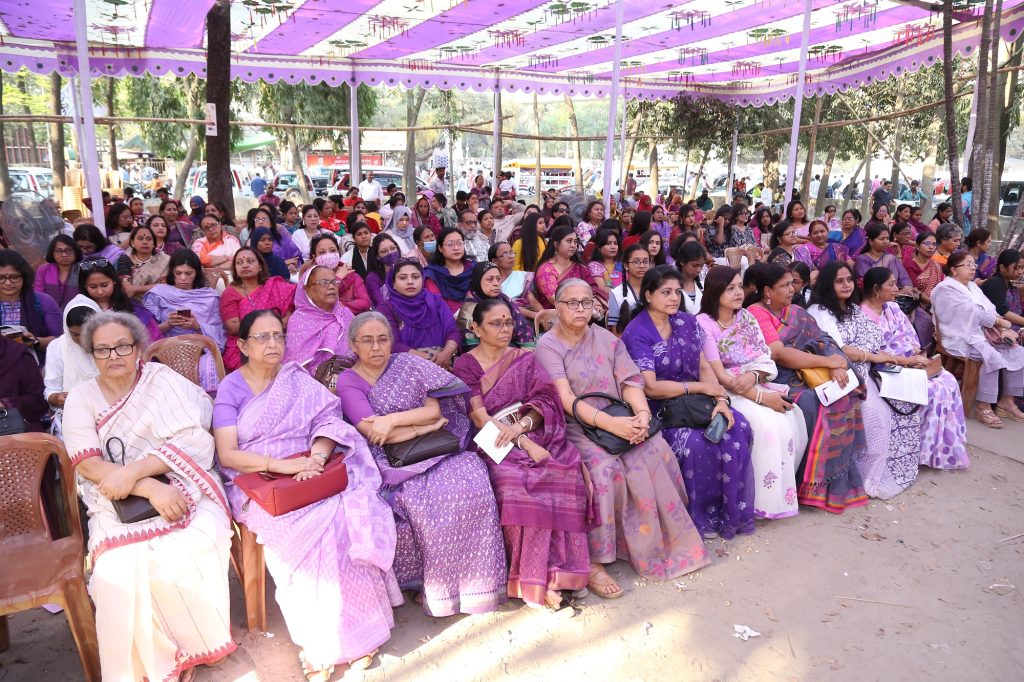
Zakia K Hasan, the former President of Women for Women and CEO of DIPTO- A Foundation for Gender and Development, highlighted the importance of tackling gender inequality and promoting equality through targeted investments in women, enhancing their skills within organizations, and enhancing the quality of work. She also stressed the significance of providing guidance on these matters during an event at the Commission on the Status of Women in New York from March 11-22. Attendees were urged to share the insights and discussions from the event both in person and online to further spread awareness and drive change.
Advocate Salma Ali, the president of the National Women Lawyers Association of Bangladesh, emphasized the need to focus on the effective implementation of family laws and urged the state to take strong initiatives in this regard.
In the Hunger Project, Dilip Kumar Sarkar said that the government should create a good environment for women to develop alongside men. Policies should be made to involve more women at all levels. Direct elections should be arranged for women to empower them politically, increasing their representation by one-third. Everyone, including women’s groups, should be aware and involved.
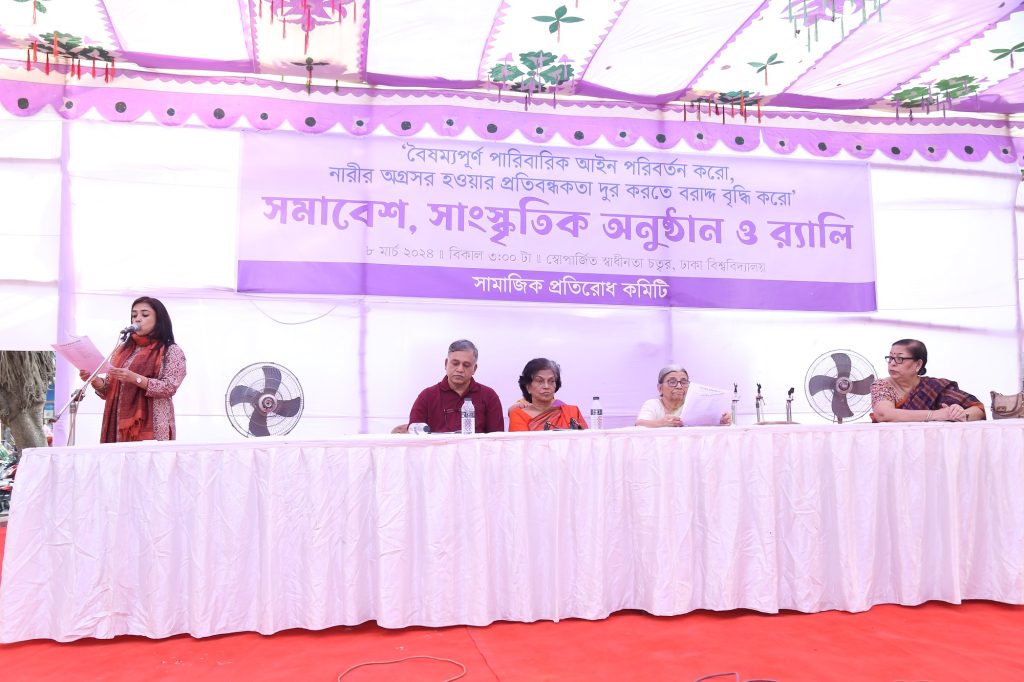
Nobonita Chowdhury, Director of Gender Justice and Diversity & Inclusive Development Program at BRAC, stated that despite significant progress in Bangladesh in economic, social, and political aspects over the past 53 years of independence, achieving expected gender equality remains a challenge due to various forms of discrimination and violence against women. She emphasized the need for changes in societal perspectives towards women alongside economic development to address the prevalent violence and violations of women’s rights. She made the following demands:
1. Implement different family laws to ensure equal rights for all citizens, covering areas such as marriage, divorce, inheritance, and property rights.
2. Ensure equal property rights and ownership for women in wealth and assets.
3. Declare the Ministry of Women and Children’s Affairs as a full-fledged ministry.
4. Recognize and include women’s unpaid domestic work in the GDP.
5. Immediately file complaints at police stations without delay or discrimination in cases of violence, harassment, and sexual assault based on the directives of the High Court Division.
6. Enforce necessary laws and regulations for the effective implementation of the Domestic Workers Protection and Welfare Policy 2015.
7. Provide formal recognition to women domestic workers as employees and include this in labor laws.
8. To address discrimination and sexual harassment, it is important to implement and enforce laws in the High Court Division.
9. The Pornography Control Act of 2012 must be implemented. Women’s personal privacy and security must be ensured under the Digital Security Act. Controlling the publication and dissemination of reports that degrade women is necessary.
10. Ensuring the overall safety, rights, and protection of female workers is crucial.
11. The prompt implementation and enforcement of the Anti-Discrimination Act 2022 in Parliament is necessary to establish equal rights and dignity.
12. Proper implementation of the National Women Development Policy 2011 and the National Action Plan for Women’s Peace and Security 2019-25 is essential.
13. Full implementation of Articles 2 and 16(1)(g) of the CEDAW Convention by withdrawing reservations is necessary.
Representatives from the Social Action Committee, the Central Committee of Bangladesh Mahila Parishad, staff members, and journalists from print and electronic media were present at the event.
The event was conducted by Rizwana Ferdousi Karim, lecturer at YWCA High School for Girls.
At the end of the gathering, a procession was held from Dhaka University’s Shoparjito Shadhinota Chattar to the National Museum.

